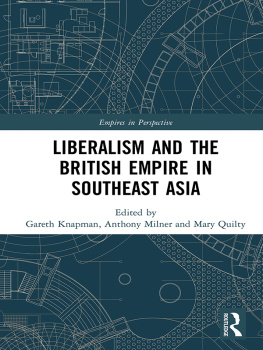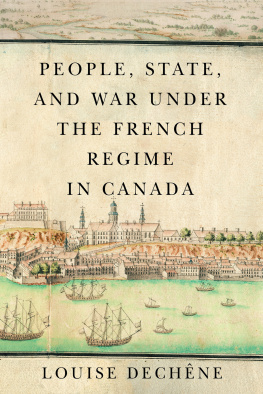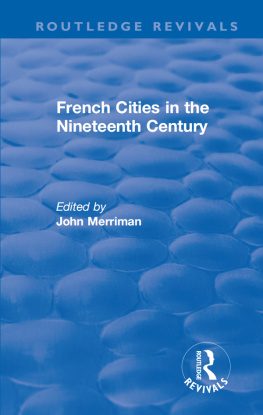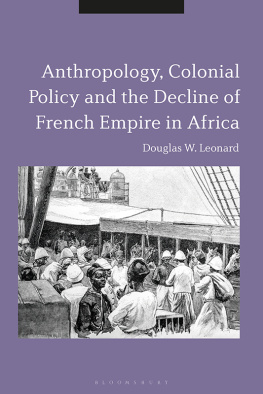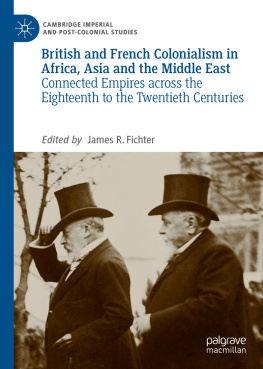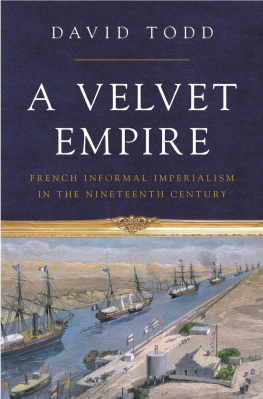ROUTLEDGE LIBRARY EDITIONS: WORLD EMPIRES
Volume 13
FRANCE OVERSEAS
FRANCE OVERSEAS
A Study of Modern Imperialism
HERBERT INGRAM PRIESTLEY
First published in 1966 by Frank Cass & Co. Ltd.
This edition first published in 2018
by Routledge
2 Park Square, Milton Park, Abingdon, Oxon OX14 4RN
and by Routledge
711 Third Avenue, New York, NY 10017
Routledge is an imprint of the Taylor & Francis Group, an informa business
1938 The American Historical Association
All rights reserved. No part of this book may be reprinted or reproduced or utilised in any form or by any electronic, mechanical, or other means, now known or hereafter invented, including photocopying and recording, or in any information storage or retrieval system, without permission in writing from the publishers.
Trademark notice: Product or corporate names may be trademarks or registered trademarks, and are used only for identification and explanation without intent to infringe.
British Library Cataloguing in Publication Data
A catalogue record for this book is available from the British Library
ISBN: 978-1-138-47911-1 (Set)
ISBN: 978-1-351-00226-4 (Set) (ebk)
ISBN: 978-1-138-54961-6 (Volume 13) (hbk)
ISBN: 978-1-351-00243-1 (Volume 13) (ebk)
Publishers Note
The publisher has gone to great lengths to ensure the quality of this reprint but points out that some imperfections in the original copies may be apparent.
Disclaimer
The publisher has made every effort to trace copyright holders and would welcome correspondence from those they have been unable to trace.
MAP SHOWING THE LOCATION OF THE FRENCH EMPIRE
The American Historical Association
FRANCE OVERSEAS
A Study of Modern Imperialism
BY
HERBERT INGRAM PRIESTLEY
FRANK CASS & CO. LTD.
1966
Copyright 1938 by The American Historical Association
Published in Great Britain by
FRANK CASS AND COMPANY LIMITED
10 Woburn Walk
London W. C. 1
The French colonial empire of the Old Rgime was liquidated during the Napoleonic wars. For a few years after 1810 the flag of France floated over no trading post or colony, though it had once, in the seventeenth century, marked a wider reach of extra-European power than Englands. That was the end of nearly 200 years of modern rivalry between France and other expansionist powers, chiefly Spain, Holland, and England. At the same time, recuperating from its loss of the Thirteen Colonies, the British Empire began the evolutionary process presaging its actual condition.
Upon restoration of peace in 1814, recovery of colonial prestige became one of the leading affairs of the French state. First the Old Colonies were reoccupied, a moment was spent in overcoming the handicaps of cessation of the slave trade, then new areas were sought in the Pacific, in Asia, and in Africa. Once again in the front rank as a colonial adventurer, throughout the growth of neo-mercantilism and under the Third Republic, France struggled for still greater prestige and financial gain; she came in the end to a greater appreciation of the responsibilities involved in overseas dominion and care of retarded peoples. Dramatic diplomatic warfare was always being waged, but the story of that rivalry has often been told and needs no repeating here other than as a thread upon which to hang the progress of the colonial ideal.
This book is the first one-volume presentation in English of the growth of France overseas to a recent date; the story has dramatic interest which deserves a hearing in the English-speaking world. It is here presented very much as Frenchmen have recorded their share of glory and trial in the expansion of Europe. For reasons of economy it is impossible to print a bibliographical list of materials used; the foot-notes disclose selections from no less than 7,000 items consulted during ten years of study. Among the authorities appear most of the accepted writers, but if one were to be named as the guide most frequently consulted and leaned upon it would be M. Georges Hardy. To name others would be to repeat too many foot-note citations. The references are intended to guide the reader to added materials as well as to recognized sources.
Now that colonial holdings are everywhere the problem of many modern states, while emphasis is shifting toward redistribution of national control and more enlightened methods of administration of colonies; now that Africa and Asia seem ready to become scenes of new rivalries or else of more equitable attempts at international economic cooperation, it should be instructive to survey the process by which one first-rank European power has reached its present solutions of an age-old problem. From the plain narrative of events the reader may deduce what philosophies he will.
Mr. David Davies did much of the work for this volume on bibliography and citations. Proofs were read by Mrs. Eleanor Ashby Bancroft and Mrs. Irene Quintana Campa. Professor Franklin C. Palm made valuable suggestions on the page proof.
HERBERT INGRAM PRIESTLEY.
Berkeley, California
CONTENTS
MAPS
1. MAP SHOWING THE LOCATION OF THE FRENCH EMPIRE
FRANCE OVERSEAS A STUDY OF MODERN IMPERIALISM
After the second defeat of Napoleon, his conquerors undertook to return to France her old colonial holdings. When the gouty and unpopular Louis XVIII was restored to the throne, his government moved rapidly to take over the colonies, which were to be restored under the Treaty of November 20, 1815. The areas to be returned included all possessions held by France in 1792, while she agreed to end the slave trade within five years, and to discourage it meanwhile.
A French expedition sent to Pondichry to repossess the five India posts in September, 1816, was forced to wait until April, 1817, before all were restored. The stipulation that they might not be fortified had been repeated. Moreover, a dispute over the delimitation of Mah dragged on until 1853. More pertinaciously was jealousy shown in Madagascar. The name of this island had been omitted from the treaty, and the English governor of Mauritius, Farquhar, insisted that it was a dependency of the le de France, and claimed all of it.


